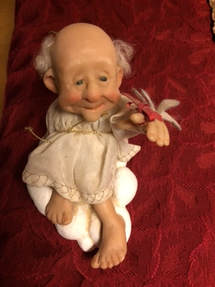|
I was expected to go nowhere. They said I was lazy, unmotivated. When it came to math, teacher remarks went something like this: “Bryan just won’t apply himself. He won’t sit still, and he disrupts my class with his showing off and silliness.” They seemed convinced that I was out to get them.
Such comments usually came from uninformed teachers who couldn’t comprehend how I, at age 12 for example, could converse about Watergate or memorize the pages from Peter Benchley’s Jaws or Irwin Shaw’s Rich Man, Poor Man, but was locked in a perpetual struggle with fractions and sleepy from the same old stale colonial American “history.” The truth is, I was confoundedly bored, but legitimately challenged, and I didn’t fare well with the then-pathetic North Carolina school curriculum, which consistently ranked low at the national level. By age 14, I was shut down, and stayed that way until I dropped out of high school. One high school “guidance counselor” asked me about my future plans. I told him what I wanted to do. He stared at me from behind his Mr. Peabody glasses and said, “Well, those guys are smart.” I became convinced, though, that the many teachers and so-called guidance counselors were wrong about me, and returned for my GED. The rest, as they say, is history; my history. Regarding the math, I had what is now known as “dyscalculia,” a genuine disability with respect to mathematics. My father, God rest his soul, could not or would not wrap his mind around the idea that his only son was a failure at math. My mother wasn’t any good at it, either, so she would ask Dad to “help” me. I struggled to comprehend, and he would sigh. Then he would yell. Then he would scream. Not a pleasant time in my life. This was a man with a recorded IQ of 180 and had received an appointment to the United States Military Academy at West Point. He turned that down after being promised that he would enter flight school for the U.S. Navy after just two years of college, and he was never the same after that broken promise, having lost two rare opportunities. He had difficulty, I think, embracing much of his own personal history, a family history that included forced Indian removal and further shattered U.S. government promises having to do with roads never built and monies never delivered, and a chaotic childhood where he was passed around from person to person. So that’s life in the trenches, I suppose. For the rest of my life I struggled with the numbers, but as a canine behaviorist I could do things with a German Shepherd puppy that awed my clients. This was probably because the dogs spoke to me in ways that the naysayers and the math formulas could not. The years past and Dad mellowed a bit, and I recall his pride when I graduated college and later, seminary. The figurine in the photograph of the old man and the butterfly was a present from my father later in life. He said it reminded him of my gift with the dogs. During those later years, Dad and I became friends, and it was then that it became possible to embrace my past. The figurine reminds me regularly of a man who loved me as best he could considering the circumstances he was dealt. How about you? Is it possible that you’re being called to embrace something from your past? If so, drop me a line. I would love to hear about it.
0 Comments
Leave a Reply. |
Yona Ambles"YOH-nuh" (yonv) means "bear" in Cherokee. Thanks for visiting! Archives
January 2024
|


 RSS Feed
RSS Feed
